Gas vs Electric Water Heater: Ultimate Comparison
When faced with the decision of whether to opt for a gas or electric water heater, it's essential to have a clear understanding of the key differences between the two options. This article aims to provide an in-depth analysis of the pros and cons associated with both gas and electric water heaters. By comparing factors such as energy efficiency and upfront costs, homeowners can make informed choices that align with their specific needs.

How do electric water heaters work?
An electric water heater operates by utilizing submerged heating elements inside a storage tank. These heating elements are powered by the electrical system of your home. The thermostat on the unit continuously monitors the water temperature and switches off the heating elements once the desired temperature is reached. This mechanism ensures that the water remains hot and readily available for your use.

Benefits of electric water heaters
Electric water heaters offer a host of benefits over traditional gas-powered heaters:
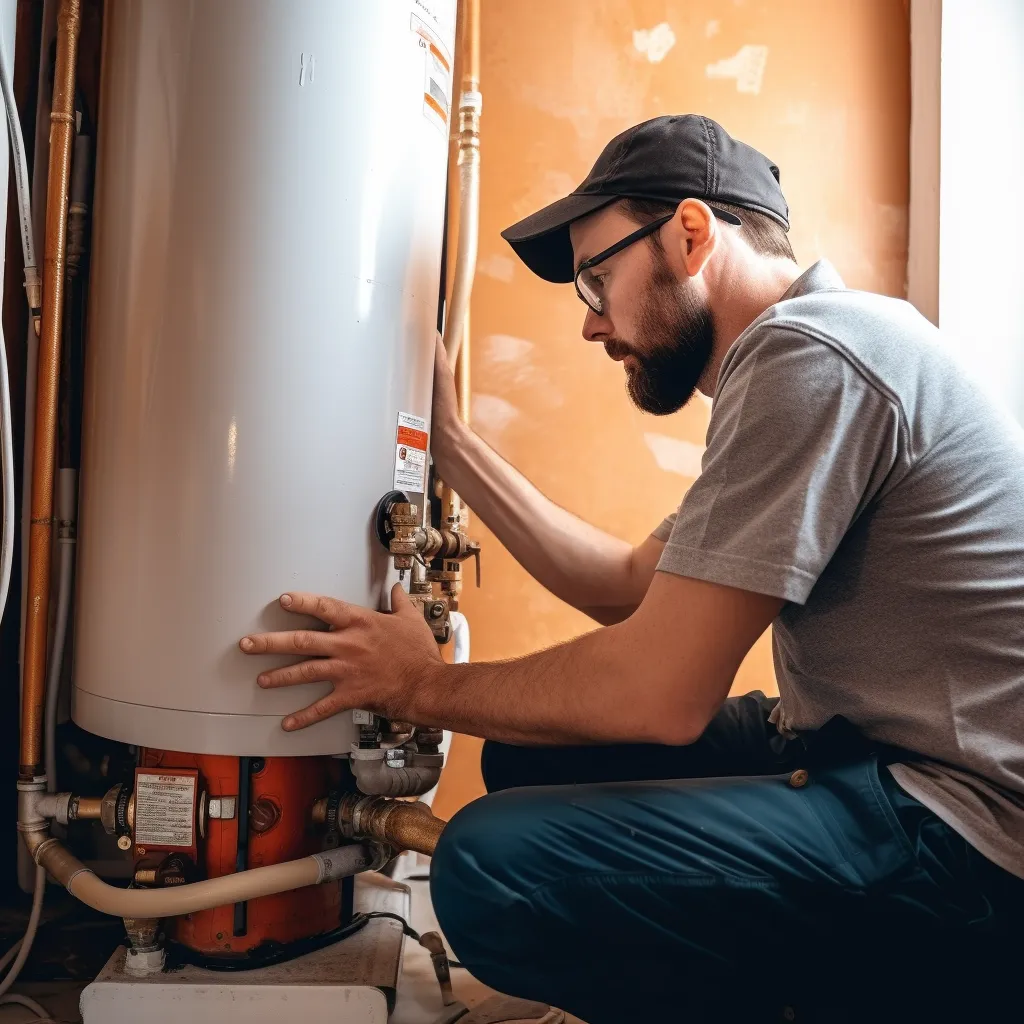
Safety: Electric water heaters eliminate the need for gas lines, reducing the risk of gas leaks and carbon monoxide poisoning. This makes them a safer option for households.
Installation flexibility: Electric water heaters can be installed in various locations since they do not require venting for exhaust gases. This flexibility allows for easier installation in different areas of the home.
Efficiency: Electric water heaters have high energy efficiency, as they convert almost all of the electricity into heat. This can result in cost savings on energy bills over time.
Lower upfront costs: Electric water heaters generally have lower upfront costs compared to gas-powered models. They also tend to be more affordable for installation and maintenance.
Environmentally friendly: Electric water heaters produce zero greenhouse gas emissions during operation, making them more environmentally friendly and contributing to a greener home.
Durability: Electric water heaters often have a longer lifespan compared to gas-powered heaters, providing reliable hot water for an extended period.
Disadvantages of electric water heaters
Despite their many advantages, electric water heaters, like everything else, have some drawbacks you should consider as well.
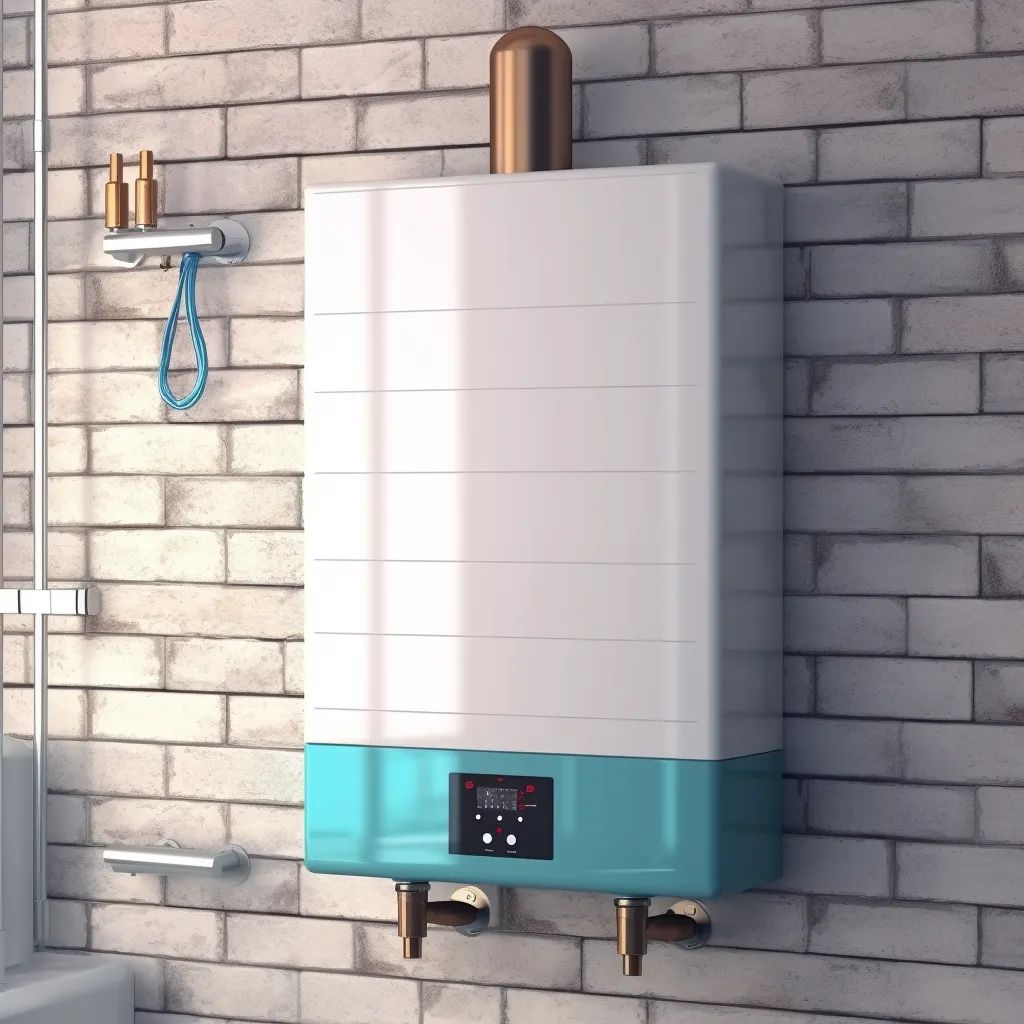
Slower recovery rate: Electric water heaters typically have a slower rate of water heating compared to gas models. This means it may take longer for the water to reach the desired temperature, especially during periods of high demand.
Energy costs: While electric water heaters are more energy-efficient, electricity rates can still lead to higher energy bills. It's important to factor in the ongoing costs of electricity when considering the overall expense.
Shorter lifespan: Electric water heaters generally have a shorter lifespan compared to gas-powered models. This means you may need to replace the unit sooner, adding to long-term costs.
Power outage impact: Electric water heaters rely on a continuous supply of electricity to function. During power outages, there may be no hot water available until power is restored.


How do gas water heaters work?
Gas water heaters function by igniting a gas burner located at the base of a large tank. The burner heats the water stored in the tank, which can then be accessed through a tap when needed. As hot water is used, cold water enters the tank to maintain a constant supply. This continuous cycle of heating and replenishment ensures a consistent flow of hot water for various household needs.
Pros of gas water heaters
Gas water heaters are a popular choice for many homeowners:

Cost-effectiveness: Gas water heaters are generally more cost-effective in the long run, as they can result in lower utility bills compared to electric units. Gas is often a more affordable fuel source, leading to potential cost savings over time.
Faster hot water delivery: Gas water heaters heat water more quickly than electric models, providing hot water faster when you turn on the tap. This can be beneficial for households that require immediate access to hot water.
Longer lifespan: Gas water heaters tend to have a longer lifespan compared to electric units. This means you may not need to replace them as frequently, saving you money on replacement costs.

Cons of gas water heaters
Despite their many advantages, gas water heaters also have some potential downsides:

Environmental impact: Gas water heaters contribute to air pollution as a result of burning natural gas, which is a fossil fuel. This combustion process releases pollutants into the atmosphere, adding to overall environmental concerns.
Risk of explosion: Incorrect installation or improper usage of gas water heaters can potentially lead to explosions. It is crucial to strictly follow safety guidelines and have a professional handle the installation to ensure proper operation and minimize the risk of accidents.
Higher maintenance costs: Gas water heaters generally require more maintenance compared to electric units. This may involve regular inspections, cleaning, and potential repairs. These additional maintenance requirements can lead to higher ongoing costs.
Longer installation time: Installing a gas water heater typically takes more time compared to electric units. It involves setting up gas lines, venting systems, and ensuring proper connections. Allowing for several hours of installation time is important to ensure a satisfactory and safe setup.

Are electric water heaters energy-efficient?
The efficiency of electric water heaters can vary depending on various factors. These factors include the size of the unit, the quality of insulation, and the operating temperature. While gas-powered water heaters are commonly known for their higher efficiency, electric models have been improving their energy efficiency ratings over time.

Are gas water heaters energy-efficient?
Gas-based water heaters generally offer better cost-effectiveness and energy efficiency compared to electric models. These water heaters function by burning natural gas to heat the water, which typically consumes less energy compared to electric heaters. The efficiency rating of a gas water heater can be influenced by factors such as the size and model of the unit, as well as maintenance practices.
What does it cost to buy and install electric water heaters?
Electric water heaters are available in a range of sizes and with different features, and their costs can vary accordingly. On average, a 50-gallon electric water heater may cost between $300 and $800. The installation of an electric water heater typically requires an additional expense of around $300 to $500, which can vary depending on the specific scope of work and any required permits.

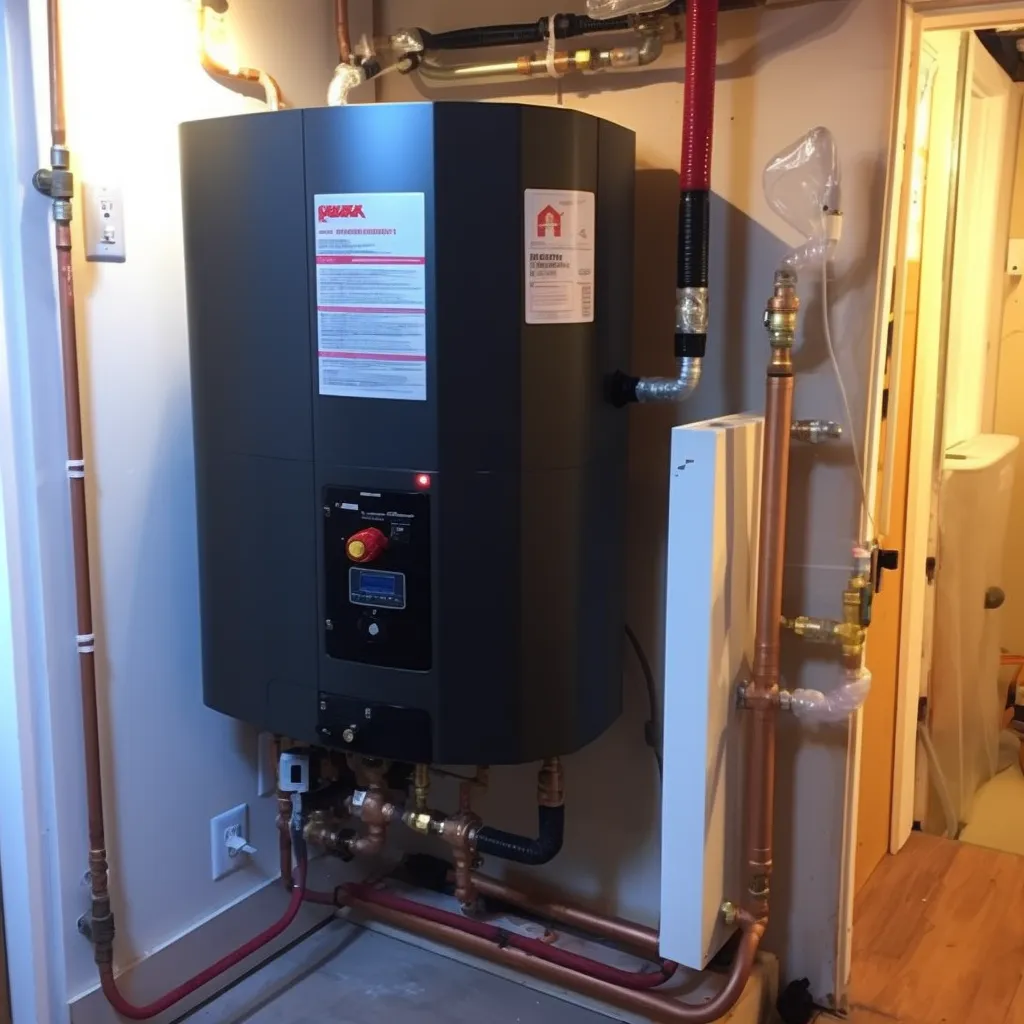
What does it cost to buy and install gas water heaters?
Gas water heaters come in a range of sizes, and their prices typically range from $500 to $1,500, with high-end models reaching up to $3,000. Additional costs to consider include installation charges, which can vary depending on your location and specific plumbing requirements.
Although the initial cost of a gas water heater may appear higher, it's important to recognize the long-term benefits and savings. Gas water heaters offer better energy efficiency compared to some other types, resulting in lower utility bills over time. Additionally, they provide a consistent and uninterrupted supply of hot water, which can be especially beneficial for households with high hot water usage.

Maintenance needs of electric water heaters
Proper maintenance is crucial for electric water heaters to ensure reliable and safe operation. Regular checks of the temperature and pressure relief valve are necessary to prevent overheating and potential explosions. Flushing the tank periodically, typically every six months to a year, helps remove sediment buildup, ensuring optimal efficiency. It is also important to inspect the heating elements for any signs of damage or mineral buildup and replace them when necessary. Additionally, maintaining secure and undamaged electrical connections is essential for safe functioning. If you are unsure about performing any maintenance tasks, it is recommended to seek the assistance of a licensed professional.
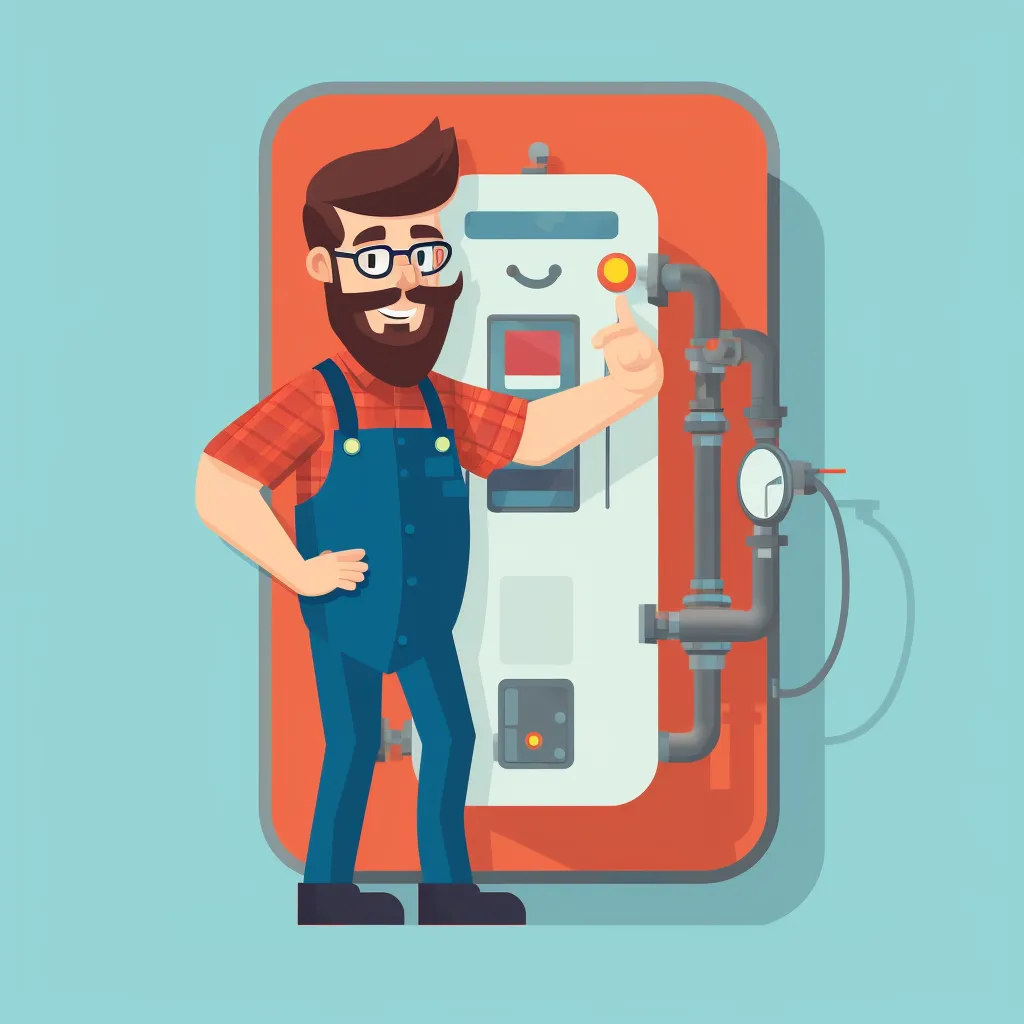
Maintenance needs of gas water heaters
Regular maintenance is essential for gas water heaters to ensure effective and safe operation. Tasks such as flushing the tank annually, inspecting the anode rod every few years, monitoring the burner and pilot assembly for debris or damage, testing the temperature and pressure relief valve annually, and checking for gas leaks are important. By performing these maintenance tasks, you can ensure the efficient and safe operation of your gas water heater. Consulting a licensed professional is recommended if you have any uncertainties or concerns.


Safety considerations of electric water heaters
When using an electric water heater, it is crucial to prioritize safety to prevent hazards. One major concern is the risk of electrocution, which can occur if the heater is not properly grounded or experiences a malfunction. Fire hazards can also arise if the heater overheats or is placed near flammable materials. To mitigate these risks, it is highly recommended to follow the manufacturer's instructions and have a licensed professional install the water heater. By taking these precautions, you can ensure a safe and reliable operation of your electric water heater.

Safety considerations of gas water heaters
Safety is crucial when using gas water heaters. Install a carbon monoxide detector nearby, inspect and maintain the heater regularly, and keep the surrounding area clear of flammable materials. These precautions help ensure a safe environment in your home.
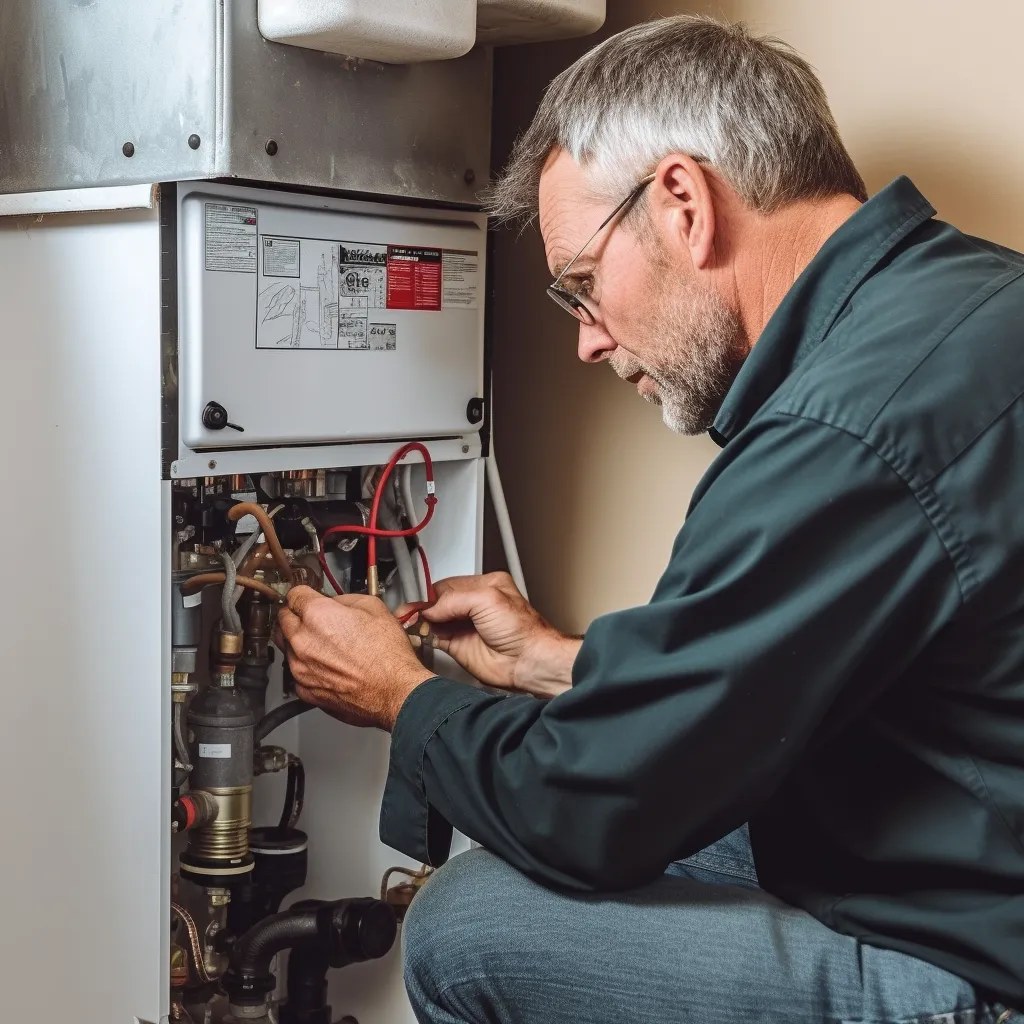
How to choose between electric vs gas water heater
By considering these factors, you can make an informed decision about the most suitable type of water heater for your needs.
Home size and hot water usage: Determine the appropriate capacity based on the size of your household and the frequency of hot water usage.
Cost: Compare the initial purchase and installation costs of electric and gas water heaters. Gas heaters may offer long-term cost savings, while electric heaters have lower upfront expenses.
Efficiency: Gas water heaters are generally more energy-efficient and cost-effective to operate compared to electric models.
Maintenance: Electric water heaters require less maintenance, while gas heaters need regular inspections to ensure safety and prevent malfunctions.
Environmental impact: Electric water heaters produce fewer emissions and have a lower carbon footprint compared to gas water heaters.
Ultimately, the choice of water heater will depend on your personal preferences, lifestyle, and budget. Consider factors such as energy efficiency, installation costs, maintenance requirements, and the availability of fuel sources in your area. Assess your hot water needs, long-term cost savings, and any specific environmental considerations. By weighing these factors, you can make a decision that aligns with your priorities and ensures a reliable supply of hot water for your home.

Why you should hire a licensed professional
to install your water heater
Installing or replacing a water heater is a significant task that should be approached with caution. While some may consider a DIY approach to save money, it can be risky and potentially dangerous. It is highly recommended to hire a licensed and experienced professional for this job. They have the knowledge, skills, and expertise to ensure a safe and proper installation. By entrusting the task to a professional, you can have peace of mind knowing that safety measures will be followed and any potential issues will be addressed. Your safety should always be the top priority, and relying on a licensed professional is the smart and responsible choice.
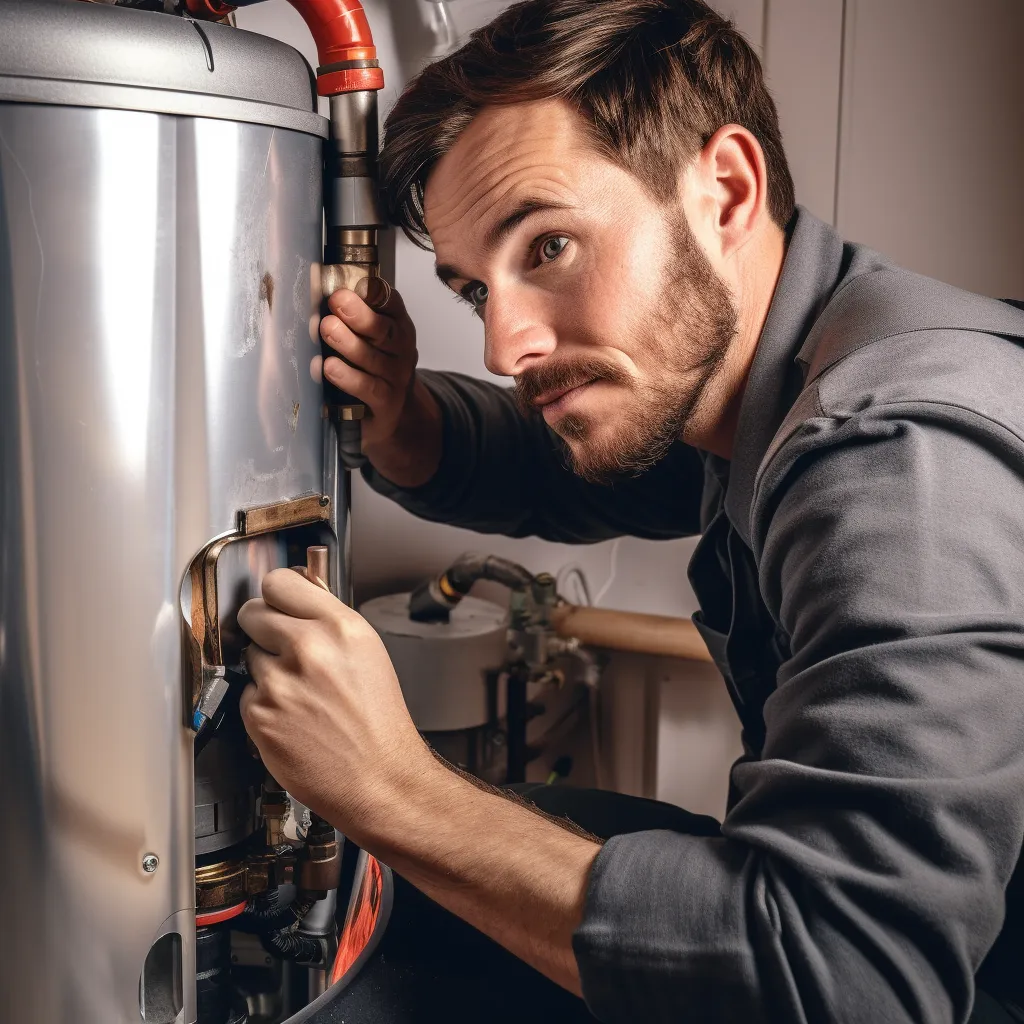

Be sure to do your research
When choosing a water heater, conducting thorough research is essential. Electric and gas models each have their own pros and cons. Additionally, factors such as safety considerations and installation requirements should be taken into account. By carefully planning and considering these aspects, you can find the ideal water heater for your needs. However, it's important to emphasize the significance of hiring a licensed professional to ensure proper installation. Their expertise will guarantee that your water heater operates safely and efficiently.
Contact Us
GET IN FULL TOUCH
PHONE: (831) 604-3132
EMAIL:
Gregory@waterheaterseaside.com
Family Home Plumbing Services
Seaside, CA 93955
